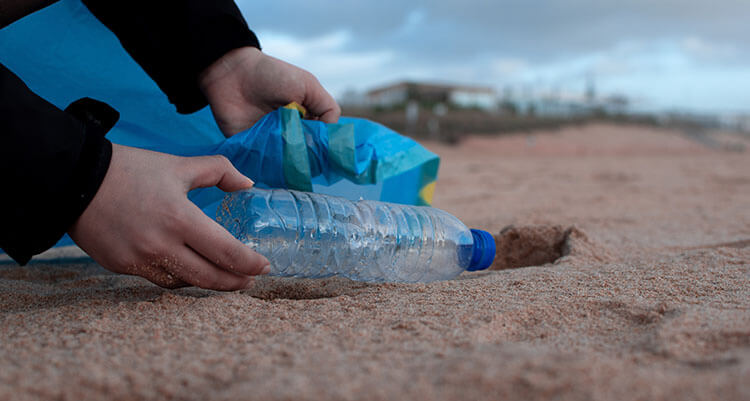What is the difference between biodegradable bags and compostable bags?

Plastic vs. Biodegradable vs. Compostable Bags: Which is Best for Businesses?
Content:
Most of us now understand that the way we lived 20-30 years ago is unsustainable: the earth cannot support that level of waste plastic and pollution from fossil fuels. We now understand the importance of sustainable, planet-friendly living and are better equipped to make responsible choices. The current state of the environment can be overwhelming to think about, but thankfully, there are several changes we can make to live more responsibly.
One of the biggest proponents of pollution and environmental damage is single-use plastic. As businesses, it’s up to us to lead the way so our customers can live better, environmentally conscious lives and offer them the chance to make
a better choice. Better still, by choosing to use and offer biodegradable bags, we can win over environmentally conscious customers.
If you’re considering choosing biodegradable or compostable bags but aren’t sure what the difference is, keep reading.
What’s the difference between biodegradable bags and compostable bags?
You might be inclined to use the terms “biodegradable” and “compostable” interchangeably, as they’re both better for the planet than traditional shopping bags.
While biodegradable bags are technically better for the environment than single-use plastic, it’s a term often used by companies because they will, technically, break down over time. Biodegradable simply means that microorganisms will be able to break it down over time. A biodegradable bag is always better than a single-use bag, but you need to do further research to find out how long it takes for that bag to break down.
Compostable bags are typically made with natural plant starch, and they’re better for the environment as they don’t produce any toxic material. Compostable bags break down naturally through microbial activity, forming natural compost. Not only do compostable bags not add to the waste that takes hundreds of years to decompose, but it adds to the nutrients in the ground, continuing the cycle of renewable energy generation.
How long does it take for biodegradable plastic to degrade?
Plastic best recycled where possible and compostable if it must be used for single-use, such as trash bags, pet waste bags, and so on.
Biodegradable is a term that can be used by any company with a plastic that will one day decompose, and that means it can include plastics that take up to 500 years to decompose. While biodegradable is a positive term, it’s better to seek out compostable plastics and materials whenever possible.
How long does it take for compostable plastic to degrade?
Compostable is a term that can only be used by packaging that will degrade by 90% in 180 days, and there should be no toxic effect that leaches into the soil. We chose our plastic because it will be fully decomposed in 180 days – this makes it the perfect plastic to use for any single-use application.
Why is it so important to avoid using plastic?
When plastic does degrade, it dissolves into toxic particles, contaminating the soil and waterways and potentially killing marine life and animals that accidentally consume them.
Plastic bags are typically made from petroleum-derived polyethylene, which is made using fossil fuels. To make matters worse, the energy used in plastic bag production usually involves burning more fossil fuels! To put that into context, the production of just 14 plastic bags requires the same amount of fuel to drive one mile. This is a huge waste of energy and produces pollution, which contributes to respiratory problems and smog in cities and to the effects of global warming.
Clearly, plastic should only be used when absolutely necessary, not as our default. So, how can we work towards reducing our reliance on single-use plastic bags?
Choose EcoBag
For a sturdy, reliable and eco-friendly alternative to single-use plastic, Ecobag has just what you need.
Our tough and durable bags are made using cornstarch and Polybutylene adipate terephthalate (PBAT), fully biodegradable plastic. EcoBags fully biodegrade after just 180 days, which is less than 1% of the time it will take for a plastic shopping bag to degrade.
So, whether you’re looking for shopping bags, trash bags or pet waste bags, we’ve got you covered. Plus, all our products are fully customizable, making them ideal for any brand – large or small. We’ve even worked with supermarket giants like Walmart, Jumbo and DollarTree!
We’re one of the most trusted suppliers of biodegradable and compostable bags, and we want to use our decade of experience to supply your eco-friendly bags. To view our full range of compostable products, please visit our website.
